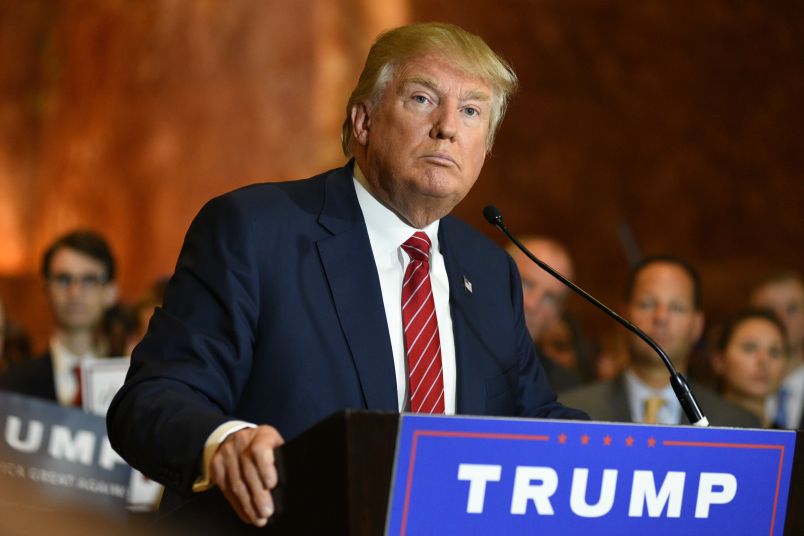I take a backseat to no one in thinking Donald Trump is an ignoramus and a buffoon. But the Times, having repeatedly stumbled in its coverage of the Iran deal and politicized foreign policy, should do better than to take Hugh Hewitt’s word for it in judging foreign policy reality. I mean, really? Trump stumbled when he apparently thought Hewitt was referring to the Kurds when he asked him about the Iranian Quds Force and its commander Qasem Soleimani. In isolation, the two words can be easy to mishear. But in context, this tells us what we know, which is that Trump knows virtually nothing about anything happening in the Middle East. Meanwhile, Fiorina gets the Times seal of approval because she’s been tutored in the kind of Movement Conservative bromides Hewitt is tasked to enforce.
Let’s look at what Fiorina said when Hewitt asked her if she knew the difference between Hamas and Hezbollah. She said: “Hamas is focused in Palestinian territories. Hezbollah focuses in Beirut and other places, but the truth is, both of them are proxies of Iran. Both of them threaten Israel.”
Hewitt gleamed: “That’s exactly right.” And Times gave the thumbs up as well.
Well, that’s actually not exactly right. And it’s the kind of detail that is helpful to know if your policies are aimed at making you more than a blundering fool.
If you’ve been paying attention, Iran had been a longtime patron of Hamas, despite being on either side of the Shia-Sunni divide. But that alliance fell apart when Hamas sided with the Syrian rebels fighting Bashar Al-Assad. Mutual opposition to Israel was the basis of the ties. But differences over the Syrian Civil War, where the preservation of the Syrian Alewite regime and by extension Iran’s hand into Lebanon, were too much to overcome. This is why the leader of Hamas’ political arm, Khaled Mashal, was compelled to relocate from Damascus to Qatar in 2012. And since then Hamas has had to rely more for financial support from Gulf Arabs who see the 21st century Middle East, not without some reason, riven by the Sunni-Shia divide.
There have some reports and signs that the Iranians have tried to reinvigorate this shuttered alliance in the aftermath of the last Gaza War. But little appears to have come of these efforts – if the reports were even true – because of the central important of protecting the Syrian regime and the impossibility of bridging the polarization of Gulf State Sunni money and Iran.






